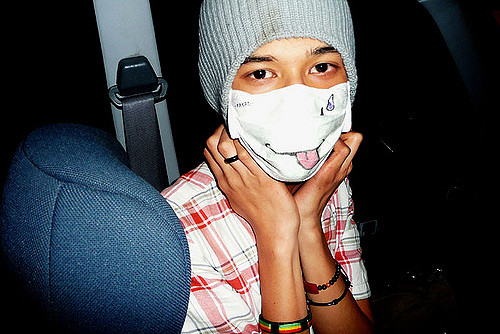We have all heard of germs or bacteria that can cause disease—it’s common to hear people say, “I caught a cold.” Statements like these are examples of people referring to their exposure to pathogenic bacteria or viruses that have made them sick.
Many people have a negative view of microorganisms because of this. In reality, there are many types of bacteria in our world, and more importantly in our bodies, which are beneficial to our health. This is important to recognize because chemicals, antibacterial products and antibiotics widely used in our society can kill the trillions of friendly bacteria in our bodies. These products should be avoided if possible. Instead, we can work to restore the balance of healthy bacteria by taking probiotics supplements and consuming cultured foods.
Why we’re less than 10 percent human.
Our bodies are composed of around 10 trillion human cells. What some people don’t realize is that our bodies are host to around 100 trillion bacterial cells. This means that less than 10 percent of the organisms inside our bodies are human cells. [1] These bacteria are much smaller than human cells, so bacteria only account for between 1 percent and 3 percent of our physical mass. [2] Of our 10 trillion human cells, we have identified between 20,000 and 25,000 different genes. [3] Of the 100 trillion different bacteria in our bodies we have discovered over three million different genes. So in terms of DNA, we are less than 1percent human. [4]
Why certain bacteria are beneficial for our health.
Knowing this, it would be foolish to assume that all bacteria are bad. On the contrary, bacteria play a major role in maintaining our health. There are bacteria that help to digest food and there are bacteria that assist in the absorption of nutrients. There are even bacteria which attack potentially harmful pathogens from the environment which could make us sick. All of these bacteria are non-human, meaning that they have their own DNA, and as a result are not under the direct control of the human body. This means that the brain can’t directly signal these bacteria and tell them to do something like it can with white blood cells.
Factors determining which bacteria live inside of us.
It is as if there are whole cultures of foreigners living inside our bodies. Some are friendly and some not so friendly. They make their own rules and acting as they please. The types of bacteria living inside our bodies are determined by a number of different factors coming from the environment. The most obvious of these factors are the foods and drinks that we consume. Eating lots of carbohydrates and sugars, for example, lead to sugar-eating bacteria since carbohydrates and sugars are both converted into glucose (sugar) once inside the body. Typically these types of bacteria generate more cellular waste and create conditions in the body that decrease our health. Some of the other environmental factors determining our “microbiome” could be surprising to many people including stress, the air that we breathe and our emotional state.
Releasing our fear of germs and the victim mentality.
When I was a child my mother would always tell me and my sister to wash our hands to “kill the germs.” I remember being afraid of germs and I imagined them as tiny monsters just waiting to make me sick. I remember feeling powerless against these microscopic invaders. As a result of this fear, I can remember having anxious thoughts about getting sick. My fear of germs created a victim mentality around my own health.
Now I have a broadened understanding of how diseases function in the body. All of the fears have fallen away and I have been able to release the victim mentality. We can greatly decrease the risk of becoming ill as a result of pathogenic bacteria and viruses by cultivating a healthy internal environment characterized by friendly bacteria. This knowledge empowers us to take responsibility for our own health and well-being.
How we can cultivate bacteria to promote our health.
We live in a society obsessed with antibacterial products from soaps to antibiotics. What some people are not aware of is the harmful effects these products have on the natural ecosystem of microorganisms living inside our bodies and on our skin. What makes more sense? Using a product which can potentially kill 90 percent of the living organisms inside our bodies or, using a probiotic supplement which, supports the growth of the organisms that help us to live and stay healthy.
Probiotics are substances that promote the growth of friendly bacteria and can be found at many health food stores. We can also receive probiotics from natural sources such as sauerkraut, yogurt and cultured vegetables. Adding probiotics to our diet is a huge step toward restoring the natural balance inside our bodies. A balance that has been thrown out of whack for many people due to pesticides, antibiotics and other antibacterial products.
Imagine our bodies are like a country and bacteria are the citizens. Consuming anti-bacterial products is like a country bombing it’s own citizens. Instead, we can take probiotics, which would be like a country building schools to educate its youth, providing free healthcare for its people and protecting its citizens from threats.
Sources:
- Ley, R. E., Peterson, D. A. & Gordon, J. I. Ecological and evolutionary forces shaping microbial diversity in the human intestine. Cell 124, 837–848 (2006)
- National Institutes of Health. National Human Genome Research Institute. NIH Human Microbiome Project Defines Normal Bacterial Makeup of the Body | U.S National Library of Medicine. 13 June 2012. Web. 20 July 2016.
- International Human Genome Sequencing Consortium (Oct 2004). “Finishing the euchromatic sequence of the human genome”. Nature 431 (7011): 931–45.
- Gill, S. R. et al. Metagenomic analysis of the human distal gut microbiome. Science 312, 1355–1359.
Relephant:
Reading This Takes Guts.
Author: John Miller
Image: Neys Fadzil/ Flickr
Apprentice Editor: Ebbie Drew; Editor: Catherine Monkman









Read 0 comments and reply